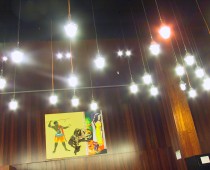A classic, somehow missed by me in high school and college.
Returning to it now as the new litigators of this topic like Coates and Cornell West have been tussling, and as new movements related to racial justice around incarceration, police violence, and reparations (did you see David Brooks get on board?) have been lively this past decade.
Dubois is one of the earlier American literary saints and thinkers on racial justice, and I finally had a look.
What an amazing and lyrical writer and historian. You could read this book just for its poetry of life in the South, or the saga of suffering under failed promises after slavery.
But I took a few particular learnings.
- All the problems of today existed in 1900 — racial poverty, enfranchisement and voting, a shadow system of slavery enforced by unjust courts and police and local laws, a weak central government, a failure to amend the substantive and economic disadvantages left by a huge moral crime, a satisfaction with variations on formal equality. And Dubois’ point is actually that all those problems of 1900 existed in 1850 and 1800 also, in moderately different forms, under the full weight of American slavery. Yikes. Disappointment in the dream of freedom basically.
- Black intellectuals didn’t agree with each other then either. Dubois’ goes after the “hey, just start a company and get rich like me!” philosophy of Booker T. Washington and all his peanut inventions. Painful to watch. Martin vs. Malcolm. (Or in post-Raj India, the conflict among early leaders like Jinnah and Nehru. It’s normal, I suppose. Solidarity is rarely durable. Hamilton and Burr…?)
- The specific history of the whole thing — the pullbacks and manipulations of the Amendments, Reconstruction, the short-lived Freedmen’s Bureau, and all that. Way more than I recall from my 1 day of Reconstruction in 11th grade history class, pretty much all I learned about it. 40 Acres, Jim Crowe, the formation of the white supremacist groups, the reign of terror on black people before and long after Emancipation, etc etc etc.
That’s it for my tl;dr. Have a look at the link for some passages that got me.
